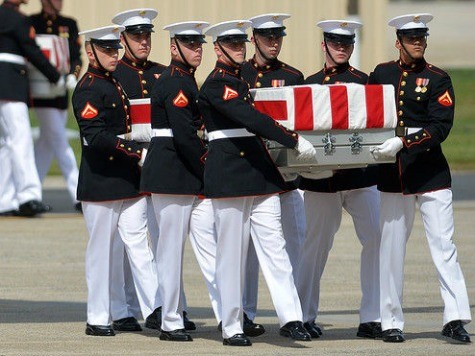
The Committee on Oversight and Government Reform released their report on the State Department’s Accountability Review Board’s (ARB) actions in their Benghazi investigation, after a May 8, 2013 hearing with whistleblowers raised questions about the ARB. The Committee interviewed numerous State Department employees after the hearing, leaving more questions than answers over the ARB.
Admiral Michael Mullen, Vice Chairman of the ARB, said the board interviewed as many people as they could about Benghazi. However, they never once interviewed then-Secretary of State Hillary Clinton. Neither Mullen nor Admiral Tom Pickering, Chairman of the ARB, provided the Committee with an explanation of why she was excluded. The Committee pointed out that the ARB did not issue any subpoenas for testimony or documents, even though they had the authority and relied on group or individual interviews. Some witnesses only appeared once in front of the Board, including Elizabeth Dibble, Principal Deputy Assistant Secretary, Bureau of Near Eastern Affairs:
Other witnesses only appeared once before the Board. For example, Elizabeth Dibble, the second most senior official in NEA one of the two bureaus the ARB criticized only appeared once before the ARB as part of a group interview that lasted about an hour and a half. When asked specifically about Dibble, Admiral Mullen stated, “[she] never really got up on the scope, per se, in terms of visibility, in terms of responsibility, what she did or did not do, from my perspective.” The fact that the second most senior person in NEA a bureau the ARB ultimately cited for “systemic leadership and management deficiencies,” appeared once, as part of a group and for less than two hours, raises a number of questions about the thoroughness of the ARB’s review. For example, aside from her participation in the short group interview, it is still unclear what information the ARB reviewed that led to the conclusion that her role or awareness of issues related to Benghazi did not warrant further inquiry.
This aroused interest in the Committee, because many documents show that Dibble had an active role in Libya. She participated in discussions about security resources in Benghazi. One of the main controversies surrounding the attack was that the consulate was inadequately secured despite Ambassador Christopher Stevens asking for increased security months before the attack, which should have provided enough reason for the ARB to review the documents and bring them to the interview with Dibble.
The ARB will not turn over any of the documents they did review, hindering the Committee’s investigation into Benghazi and forcing them to rely only on the witnesses. Since the attack happened over a year ago, a witness’s memory may not be as sharp, including those who put together the report. Admiral Mullen told the Committee he could not remember if anything in the documents supported their findings on Ray Maxwell, Deputy Assistant Secretary for Maghreb Affairs. To make matters worse, the ARB did not make official transcripts of the interviews. Mullen said they only took notes and used those notes for their report. The State Department will not give the Committee these notes and they cannot verify anything in the interviews.
The Committee also found that many of the interviews were not complete or barely concentrated on Benghazi. Scott Bultrowicz, Director of Diplomatic Security Service, was shocked that he was criticized in the ARB report over actions they never asked him about. He told the Committee the interview did not contain many direct questions about Benghazi. The ARB also interviewed Ambassador Boswell, then-Assistant Secretary of State for Diplomatic Security, and he found it odd they did not ask him about his subordinates or his role as a supervisor.
The Committee also questions whether the ARB is truly an independent board since all members are from the State Department. The Secretary of State forms the ARB by nominating four or five members, and the State Department provides the staff and resources, potentially causing major conflicts of interest:
For example, Under Secretary for Management Patrick Kennedy supervised the selection of the Benghazi ARB staff. This placed the staff in a position in which their duties required them to evaluate the performance of supervisors, colleagues, and friends. Additionally, two ARB members selected by Secretary Clinton – Ambassador Pickering and Richard Shinnick – had extensive experience with the State Department.
Mullen told the Committee it is essential for the ARB to have knowledge on the State Department, but at the same time he provided much doubt about their independence. He was asked if he ever alerted officials at the State Department or Department of Defense about ARB activities. He told them they contacted Cheryl Mills, Clinton’s chief of staff, ahead of time because it may be a difficult appearance for the State Department.
The Best Practices Panel, set in place after the 1998 attacks on US embassies in Kenya and Tanzania, have external security experts. In 1999, they provided many recommendations to then-Secretary of State Madeleine Albright but she never implemented them. After Benghazi, the State Department implemented changes the ARB recommended including an investigation by the Best Practices Panel. There is no word yet if they will listen to the panel, but the Committee said they think the State Department will likely ignore them as they did in the past. They note that many of the people cited in the 1999 report are still in positions of power at the department.
The Oversight Committee scheduled a hearing on this report on Thursday, September 19 at 9:30 AM ET. Pickering and Mullen are witnesses, along with Mark J. Sullivan and Todd Keil from the Best Practices Panel. Members of the victims’ families will be present.

COMMENTS
Please let us know if you're having issues with commenting.